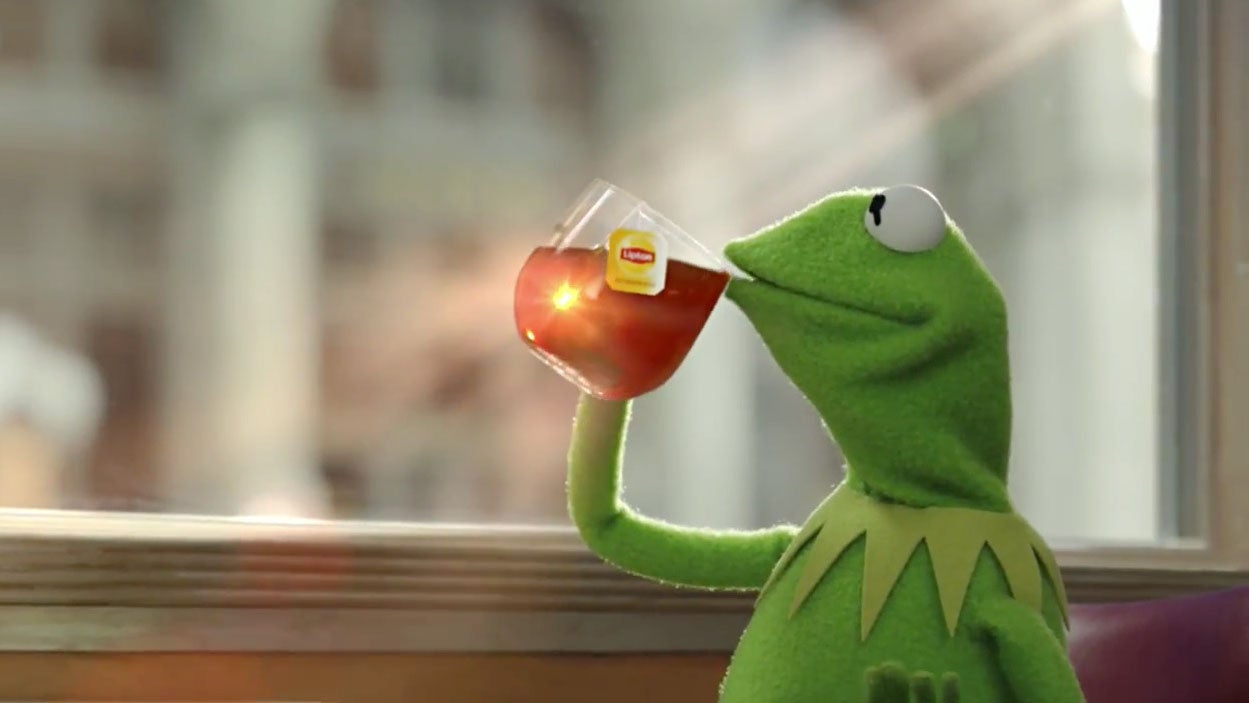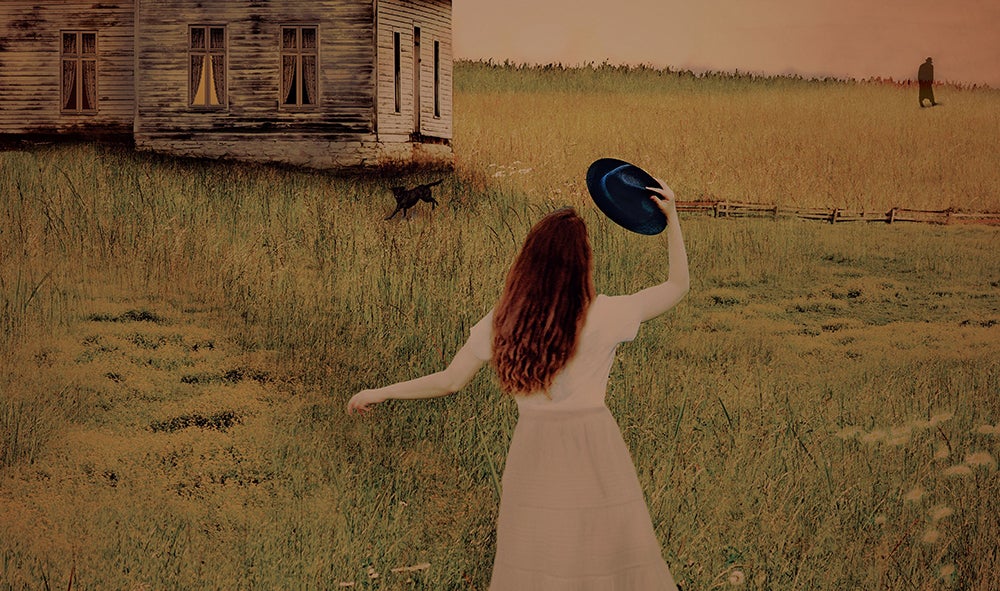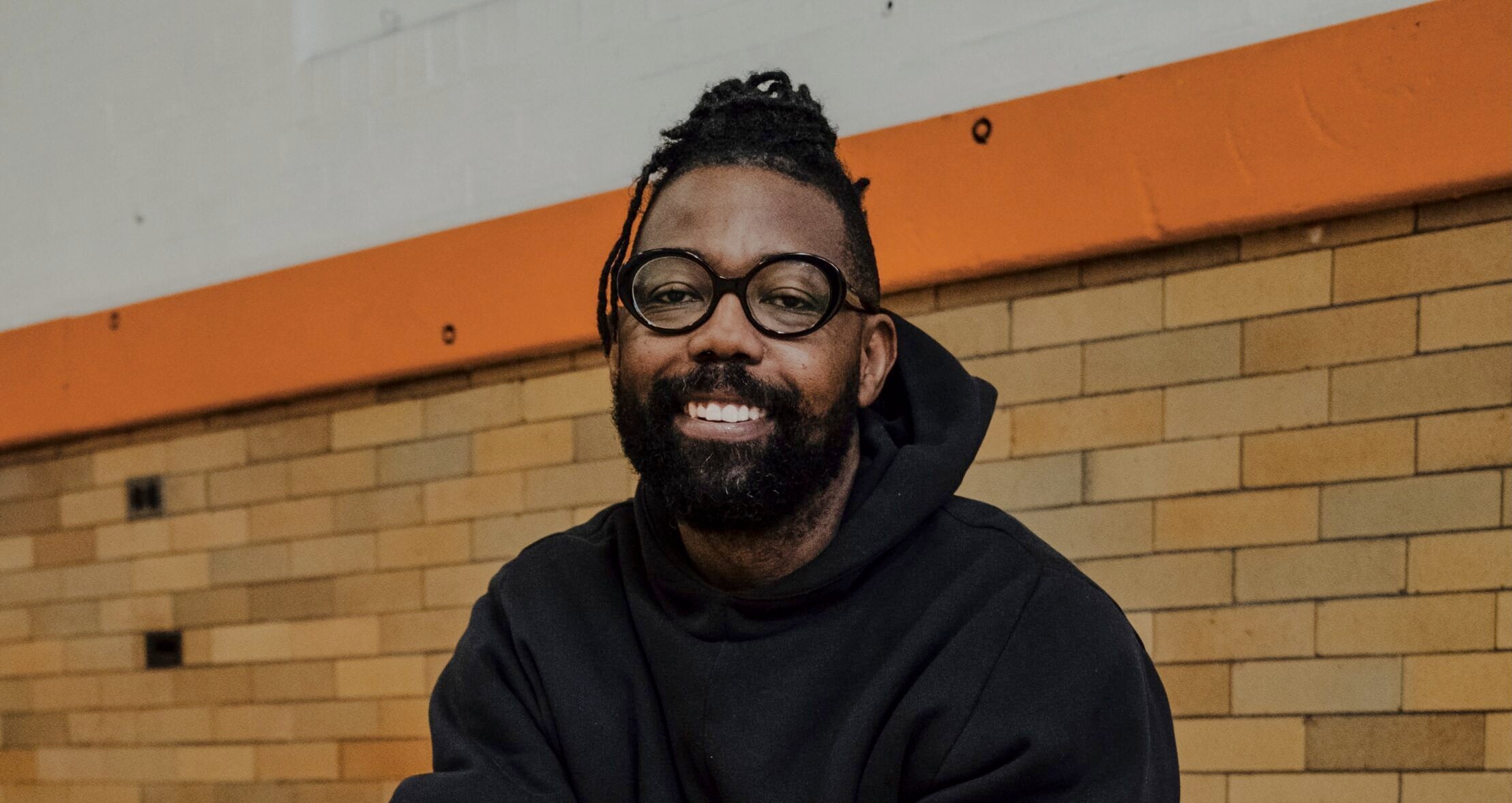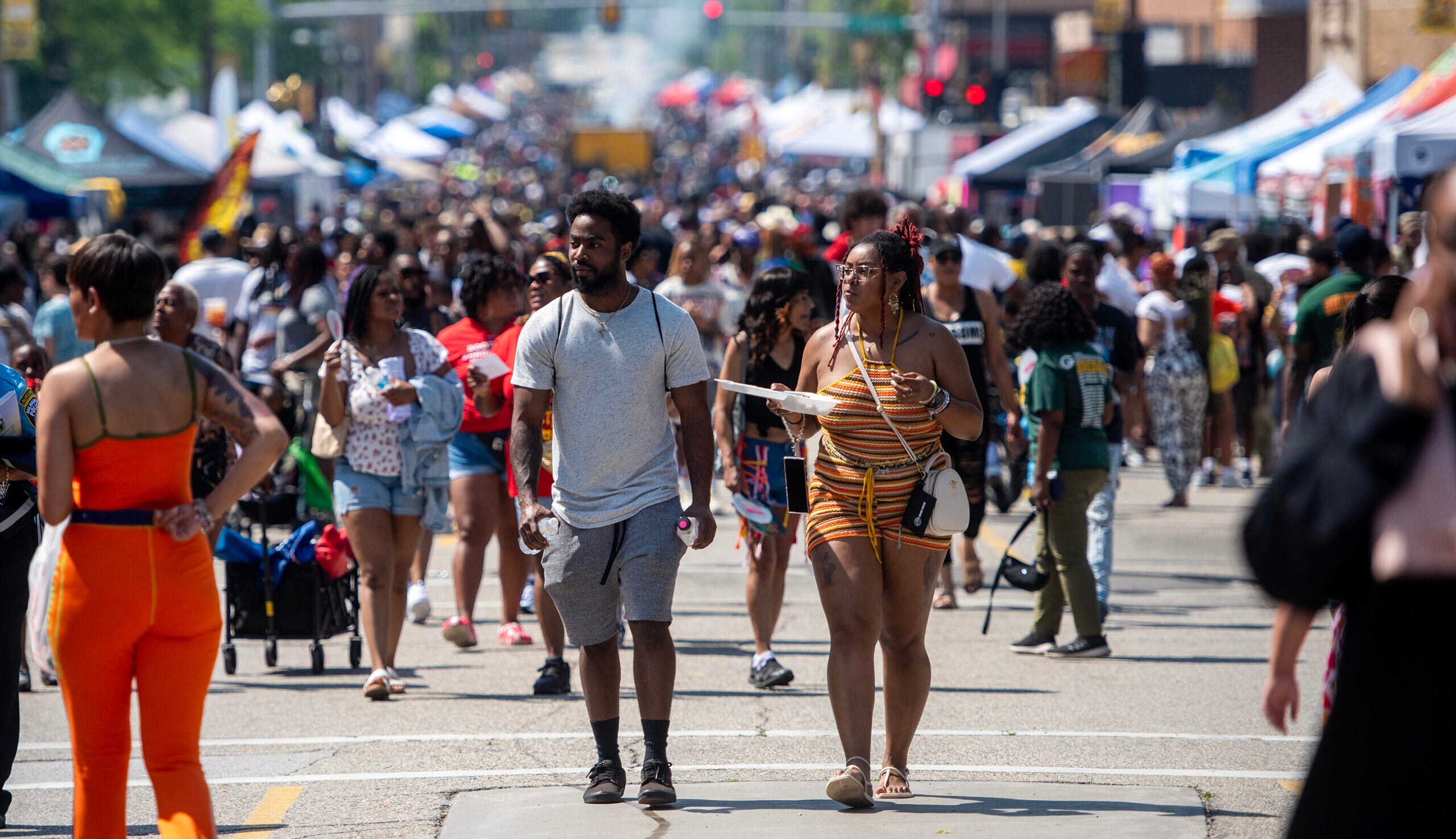“Seinfeld” writer Peter Mehlman takes on oversensitivity in his novel, “#MeAsWell.” Also, producer and musician Warren Zanes talks about his Tom Waits tribute album, “Come On Up To The House: Women Sing Waits.” And cultural commentator Lauren Michele Jackson on blackness in memes and the appropriation of black culture.
Featured in this Show
-
'Seinfeld' Writer Peter Mehlman Takes On Oversensitivity
Peter Mehlman is no stranger to having his work go viral. As a writer and executive producer for NBC’s transcendent sitcom “Seinfeld,” Mehlman is responsible for mainstreaming some of the most popular American terms of the last century including “yada, yada,” “shrinkage” and “spongeworthy.”
Since “Seinfeld,” Mehlman has focused his sharp observational talents and wit toward writing novels.
His latest, “#MeAsWell,” features a veteran sports journalist who goes viral for the wrong reasons.
Arnie Pepper is the book’s protagonist. Pepper is a well-liked sports lifer with a knack for banter and one day kills some down time with fellow reporters with a joke that walks the PC line. Little does he know their scrum’s conversation was being recorded and subsequently shared on social media by another reporter. Pepper instantly becomes the center of a media firestorm.
Mehlman is commenting on the #MeToo movement in the work, but isn’t rejecting or mocking it. Rather he’s exploring, much like “Seinfeld” did, where the needed public awareness and attention of movements meanders into something far less productive.
“There is a certain hyper reality to the book, but I’m trying to objectively look at the #MeToo movement and the dangers therein,” Mehlman told WPR’s “BETA.” “Obviously, there’s a lot to agree about with the #MeToo movement, but like every movement, there are those wings of the movement where it just goes a little bit too far and a little too over the top.”
Mehlman is satirizing those that seemingly make a living off of being offended.
“As a person, who’s had a little bit of a past in comedy, I’m horrified by how oversensitive we are and it almost seems like 50 percent of the population is sitting at home in front of their computers just waiting to be offended,” he said. “And they’re disappointed if they’re not offended. They’ll keep looking around until something really offends them and then they can feel happy.”
It’s a sentiment akin to a similar plot in Mehlman’s “spongeworthy” episode of “Seinfeld” (called “The Sponge”) where Kramer refuses to wear an AIDS ribbon during the awareness walk.
“I love the part about the not wearing the AIDS ribbon. When we took shots at our own liberalism, it was always very gratifying,” Mehlman recalled. “You know, like in Larry Charles’ episode with the outing when they kept on saying, ‘Not that there’s anything wrong with it.’ I love that, because we’re taking shots at our own ultra-leftist feelings in life.”
Mehlman’s background with both “Seinfeld” and his career as a journalist and magazine writer were helpful in constructing “#MeAsWell” and capturing the verisimilitude of our current culture and developing the Pepper character.
“(Journalism) forces you to notice people and their actions and start looking into the motivations for those actions. Just looking behind the scenes of everything, you really learn to look deeply into everything and not take things at face value, which really helps when you’re building a character,” Mehlman said.
“‘Seinfeld’ was really helpful as far as just understanding what dramatic structure is all about and making a story interesting and getting out of the gate fast,” he adds. “I always remembered that in the editing room at ‘Seinfeld,’ if the first act of the episode felt like it went by in a minute and a half, you knew it was a great episode.”
That propulsive pacing is on display in #MeAsWell as the entire story plays out over a couple of days. Mehlman also said that his past work attuned him to the various styles of humor that were sometimes more subtle than what was on display on “Seinfeld.”
“Of course, you learn different kinds of humor from all different fields. Even Howard Cosell was an incredibly funny guy. I used to kid Jerry Seinfeld that he was the second funniest boss I ever had,” quipped Mehlman.
In the novel, Pepper is a graduate of the University of Wisconsin-Madison and Mehlman states that he pulled that character thread from his own life.
“I wound up at the University of Maryland with no regrets, but I always held a special spot in my heart for Wisconsin. I don’t know why, but there was something about that school and the town of Madison that, when I was applying to colleges, I was thinking, ‘God, that looks so nice,’ Mehlman said. “So as another example of an alternate reality in my life as opposed to Arnie Pepper’s life. I made him a Wisconsin grad.”
In addition to novel writing, Mehlman has dabbled in stand-up comedy. He just can’t seem to shut off the joke valve that was needed to churn out “Seinfeld” scripts.
“To tell you the truth, since I finished the novel, I’ve been at a little bit of a loss for what’s next. I’m trying to figure it out. I do come out with the occasional new joke or something like that and I shove it into stand up and think, ‘Well, what can I do with all this?’” he said.
Maybe Mehlman should take up Jerry Seinfeld on the idea of a one-man Howard Cosell show?
“Yeah, that’s how many people will show up. One.”
-
Women On Waits: New Compilation Honors The Legendary Singer
Warren Zanes has been around the music business wearing many different hats over the years. He’s a musician who made three records with the 1980’s band the Del Fuegos, as well as three solo records of his own. For a time, he was a vice president of the Rock & Roll Hall of Fame and Museum. As a writer, his works include a history of Warner Records Inc. and a biography of rock musician Tom Petty.
His most recent project is a compilation of 12 songs written by the multi-faceted musician and songwriter Tom Waits. The album is titled, “Come On Up To The House: Women Sing Waits,” and features artists like Amiee Man, Phoebe Bridgers, Corinne Baily Rae, Roseanne Cash and eight others performing their favorite songs from Waits’ vast catalog.
For Zanes, the project started in 2018 when he got a call from Scott Robinson of Duotone Records.
In the liner notes for the album, Zanes explains:
“Scott called me and said something along the lines of, ‘Warren, I have a project I’d like you to work on, and I hope you’ll be interested.’ I agreed to this arrangement. I guess that tells you something about my relationship with the man. But Scott’s call got better. It turned out that he wanted me to produce an album of Tom Waits songs performed by female artists. Well, I’d already said yes, but, hearing this, I said it again for emphasis. Hoping to persuade me further, Scott said he’d send me a recording of a track Rodney Crowell brought in, Iris Dement doing “House Where Nobody Lives.” I’d already said yes twice, but I said it again for dramatic effect. Scott told me to think about it, that he’d check back the following week. Was I on mute? In fact, I was. For how long, I didn’t know. I unmuted and told Scott I’d think about it.”
Zanes talked with WPR’s “BETA” about how the title of the record — “Come On Up To The House” —came to be.
“The moment that that recording came in — Joseph’s version of ‘Come On Up To The House‘ — I felt like the spirit of the project was embodied in their recording. The best view in my life of femininity has often been those moments when I’m lost, and I’m wounded. And somebody sees it and says, come on up to the house and let’s see if we can get some healing done,” Zanes said.
The title track sets the tone for a series of songs highlighting some of Waits’ most poignant ballads.
It took some time, but Zanes was able to put together a collection of songs from several talented artists.
“I’ve done multi-artist projects in the past, and I knew at the outset that you ask a 100 to get 10 and so you can create your wish list, but what you end up with will never reflect that original list,” Zanes said. “But the interesting thing for me was (because) it (was) Tom Waits being honored, the percentage of takers was much higher — which was a beautiful thing about the project.”
Still, Zanes says there were some artists that “got away” including a Patti Smith cover of “What’s He Building In There?” and a Chrissy Hynde cover of “16 Shells From A Thirty-ought-six.”
Highlights on the record include Corinne Bailey Rae singing, “Jersey Girl” from Waits’ 1980’s album “Heartattack and Vine;” “Time” performed by Roseanne Cash from 1985’s “Rain Dogs,” and Shelby Lynne & Allison Moorer going back to 1973’s “Ol’ 55” from “Closing Time.”
For Zanes, all of the artists bring a personal understanding of the piece they chose, and the listener can’t help but be caught up in the tale being spun in song.
One hope of the project was to give Waits a present for his 70th Birthday, said Zanes,
“Ultimately the No. 1 goal was to wrap up a birthday present and hand it to Tom Waits on his 70th. That was the whole thing. And just to say, ‘Man, we came together as a group to tell you how much you mean to us.’”
And Waits got the message.
“And when the first track was pre-released and it was Patty Griffin’s “Ruby’s Arms“, he put it up on his website and his social media sites. For me, that was my favorite moment to have him in that way publicly acknowledge us and say, ‘I see what you kids did,’” Zanes said.
Another hope was to introduce new listeners to Waits’ amazing songwriting, Zanes said.
“So if somebody hears Phoebe Bridgers doing “Georgia Lee” and looks at the credit, it’s like, ‘Oh, she didn’t write this.’ And they start to track it back to Waits. I hope some of that’s happening. That’s the way we did it growing up. I mean, the Rolling Stones got us to Slim Harpo. And once we got to Slim Harpo, the Beatles got us to Arthur Alexander. Once we got there, they took us somewhere else. So it’s interesting. As listeners, we’re often pretty good about being historical, seeing where it came from, and trying to understand. So I hope this record does bring people back to this motherlode of songs and recordings that Tom Waits has given us.”
-
Your Favorite Meme? Chances Are It Was Influenced By Black Culture
In the age of memes, we’re inundated by the humorous images, videos, or texts on a daily basis. And just when you think we’ve hit peak meme, dozens more suddenly appear.
Cultural commentator Lauren Michele Jackson says the chances are pretty good that many of your favorite memes were created and/or influenced by black culture. It’s an argument she makes in her book, “White Negroes: When Cornrows Were in Vogue … and Other Thoughts on Cultural Appropriation.”
In her book, Jackson, a professor of English and African American studies at Northwestern University, makes the case that black people are driving meme culture. She said many memes owe a debt to a certain kind of black vernacular to articulate themselves.
“This is an observation I made years and years and years ago about how much black vernacular is like seeping into these memes, which are being used by really people all over the world — people of varying cultural backgrounds, ethnic backgrounds, racial background,” Jackson told WPR’s “BETA.”
She cites the Kermit sipping tea meme as an example. The meme originally started with the tagline, “but that’s none of my business.”
“And it’s like, you know, you go to church on Sunday but be in the club on Friday night — but that’s none of my business or something like that. It’s supposed to be revealing, like the hypocrisy of the statement,” Jackson said. “And then you have Kermit from this Lipton commercial sipping tea, which also has a sort of an additional valence to it, because when you sip tea, that’s from sort of queer vernacular, particularly from queer folks of color, meaning to sort of divulge or sort of shadily divulge secrets and gossip.”

That meme struck Jackson as “very, very black” but it was by no means limited to black people.
“The way that memes circulate and change themselves and sort of reinvent owes such a debt to the way that black people move and change and reinvent culture. Memes are one form of expression that know that they’re subject to be tired out. And so they always have to adapt and change and move,” Jackson said. “In the same way that black culture is so ripe to be taken mainstream and people get sick of it, black culture also reinvents itself as a means of survival. And so I think in my sort of abstract, linguistic argument, that’s why I say that memes are super, super black, you know, formally black, not just linguistically and not just syntactically.”
Jackson hopes her book will inspire a public conversation about the co-opting and consumption of black culture.
“I think the way the appropriation gets talked about in the sort of public discourse of it all hasn’t been the best and hasn’t been really the most precise,” Jackson said. “So the first line of my book is that appropriation gets a bad rap.”
Jackson said that when you look at the definition of appropriation and really isolate the word, appropriation isn’t necessarily in and of itself a negative thing.
“One of the examples I use is hip-hop culture and rap music, which is one of these really beautiful and glorious and really multidimensional genres of music that was able to happen through the confluence of a lot of different cultural influences,” Jackson said. “So not just black American culture, as we would call it, but southern black American culture, east coast culture, west coast culture, culture from the islands, as well as the influence of Latino immigrants. And so that kind of appropriation, we don’t really even call it appropriation because we like it.”
Jackson explains that the negative sides of appropriation come out when power dynamics are unbalanced.
“It’s because of a disparity in power that we’re perceiving when we see somebody like Miley Cyrus getting called edgy because she’s doing this thing that black women have been doing for ages and not getting called edgy or avant-garde or daring or risky,” she said. “They have much more negative characteristics that get attached to black people when they own their own culture.”
After doing an interview with “Billboard” in 2017, Cyrus was criticized for cultural appropriation and white privilege. An article in Teen Vogue mentions various examples of the singer using “her place in the hip-hop ‘scene’ to her advantage.” The article also pointed to Cyrus’ 2015 MTV Video Music Awards performance, which Nicki Minaj called out as cultural appropriation.
Jackson also explores the career of pop star Christina Aguilera and her place in the history of cultural appropriation.
“What I think is really interesting about (Aguilera) is we have someone who is raised on and comes up through and adopts her vocal style through listening to R&B and funk and old black pop legends,” Jackson said. “And so this is someone who didn’t just decide to adopt, say, a black musical sound midway through her career. No. This is someone who is on the Mickey Mouse Club, singing Whitney, singing Toni Braxton.”
Jackson said that during the late 1990s and early 2000s, Aguilera was undergoing a metamorphosis in terms of leaving behind the teen pop sensation persona and trying to develop as an artist who was “trying to take ownership of her image” by “using a different kind of black sound to escalate her own adolescence.”
She points to her first single from the same-named album “Ain’t No Other Man” as the perfect example of this transformation.
“The video is a sort of mixture of all these old-timey American aesthetics combined with an actual sound that makes use of some ’80s samples, ’60s samples,” Jackson said. “What I find very interesting about that song is … It’s meant to evoke a very specific sort of … classic American sound that ultimately still ends up being very black. And elsewhere on that album, she sings tributes to Aretha (Franklin) to Patti (LaBelle) to the sort of very classic black soul singers. Now she gets to be the mature vocalist on the other side. And it’s kind of like her transformation is complete. And you really see that with the success and the critical acclaim of a song like ‘Ain’t No Other Man.’”
Episode Credits
- Doug Gordon Host
- Roz Greiert Host
- Adam Friedrich Producer
- Doug Gordon Producer
- Steve Gotcher Producer
- Steve Gotcher Technical Director
- Roz Greiert Interviewer
- Peter Mehlman Guest
- Warren Zanes Guest
- Lauren Michele Jackson Guest
Wisconsin Public Radio, © Copyright 2026, Board of Regents of the University of Wisconsin System and Wisconsin Educational Communications Board.



